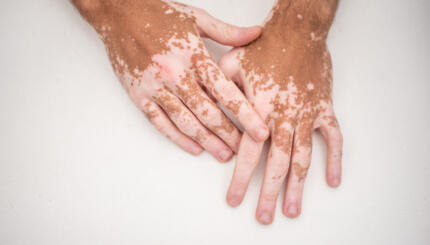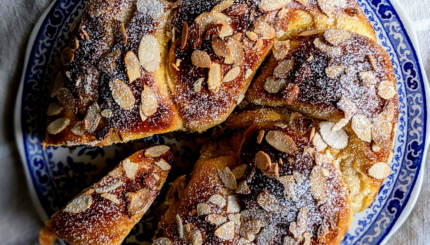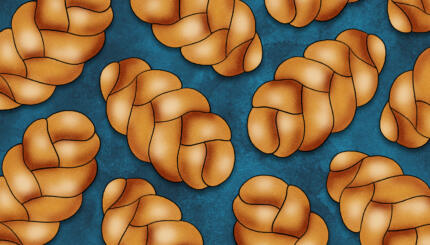Commentary on Parashat Chukat, Numbers 19:1-22:1
Every week, Julie Seltzer, artist and Torah scribe, bakes a challah depicting an aspect of the week’s Torah portion.
They will bring you a red heifer. (Numbers 19:2)
וְיִקְחוּ אֵלֶיךָ פָרָה אֲדֻמָּה

The red heifer, whose ashes purify the impure, is about to be slaughtered. When the “slaughtering” (ie, cutting of the challah) took place following the hamotzi blessing, we discovered that the neck bled from the cut–a bright red beet was baked inside!

With your help, My Jewish Learning can provide endless opportunities for learning, connection and discovery.
challah
Pronounced: KHAH-luh, Origin: Hebrew, ceremonial bread eaten on Shabbat and Jewish holidays.
hamotzi
Pronounced: ha-MOE-tzee, Origin: Hebrew, blessing said over bread. On Shabbat Hamotzi is usually said over challah.
Torah
Pronunced: TORE-uh, Origin: Hebrew, the Five Books of Moses.


